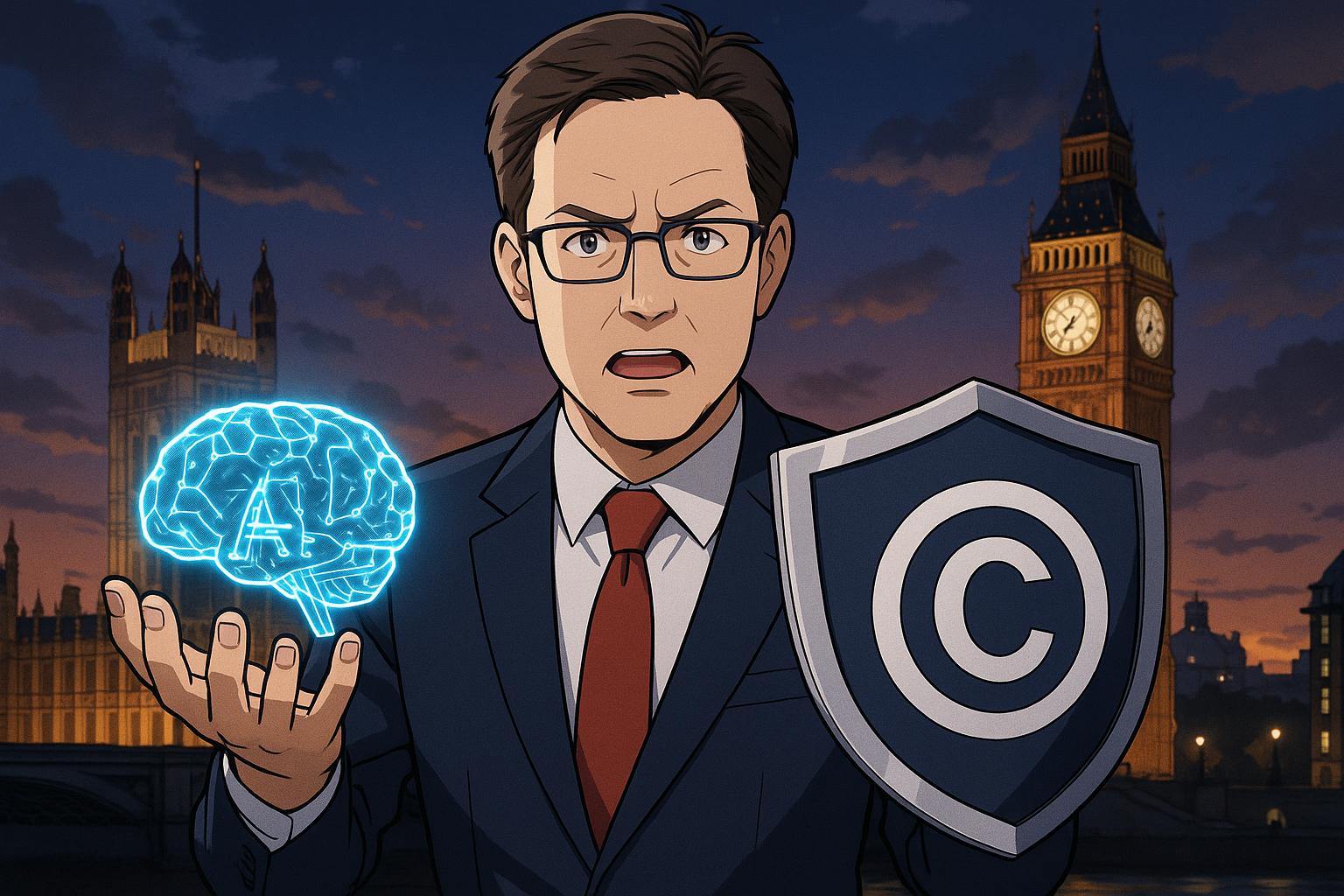Former Deputy PM and Meta executive Nick Clegg cautions that proposed UK laws requiring AI developers to seek copyright permissions for training data could cripple the nation’s AI industry, urging balanced rules over heavy-handed regulation amid intense parliamentary debate.
Nick Clegg, the former British Deputy Prime Minister and current President of Global Affairs at Meta, has ignited considerable debate surrounding the regulation of artificial intelligence (AI) in the UK. Speaking at a recent event to promote his new book, Clegg expressed concerns that requiring AI developers to seek permission from copyright holders before using their content to train models could severely constrain the UK’s AI sector—or potentially extinguish it altogether.
Clegg emphasised that while the creative community deserves protection, the notion of securing permissions from every copyright owner before engaging in AI training is impractical. “I don’t know how you can get permission from everyone first. I don’t see how it can be implemented,” he explained. His remarks underscore a pivotal anxiety among tech leaders: if the UK enforces stringent rules while other nations remain lenient, the competitive edge of local innovators could be irreparably damaged.
This controversy comes amid ongoing discussions in the UK Parliament about amendments to the Data (Use and Access) Bill, aimed at enhancing the transparency of how tech companies manage copyright material. While the proposed amendment garnered significant backing from notable figures in the creative sector, including artists like Paul McCartney and Elton John, it was ultimately rejected. British Technology Minister Peter Kyle stressed the necessity for balance, suggesting that both the AI and creative industries can thrive concurrently, rather than pitting one against the other.
This ongoing debate reflects a broader tension between technological advancement and the rights of creators. Beeban Kidron, a member of the House of Lords and the amendment’s proponent, argues that instilling transparency can bolster copyright protections, allowing creativity to flourish alongside innovation. Kidron articulated her commitment to this issue, stating, “This struggle is not over yet,” as discussions are set to continue in the House of Lords.
Echoing this tension, Clegg compared the current fears surrounding AI to the moral panics of the 1980s, particularly in relation to video games. He cautioned against “excessive zeal and pessimism” surrounding AI, advocating instead for balanced regulation that would allow innovators the freedom to advance technologies without excessive government intervention. Clegg has been vocal about the need for multilateral regulations that prevent fragmented laws across different nations, advocating for tech companies to self-regulate transparency and safety.
Despite concerns, Clegg also downplayed the existential threats posed by AI, describing current models as “quite stupid.” He posited that the hype surrounding AI has outpaced the actual capabilities of the technology, a sentiment that aligns with his criticism of an overreaction to potential dangers. He urged a focus on immediate issues such as misinformation and online safety rather than speculative risks, suggesting that governments should be cautious about imposing heavy-handed regulations.
In the increasingly heated dialogue about AI regulation in the UK, Clegg’s statements highlight the delicate balance that must be struck. As stakeholders from various sectors vocalise their interests, the challenge remains to formulate regulations that both protect creative works and nurture the burgeoning AI industry. This debate is set to evolve, with the potential for significant implications for both the tech landscape and the creative economy in the UK.
Reference Map:
Source: Noah Wire Services
- https://voi.id/en/technology/484916 – Please view link – unable to able to access data
- https://www.theguardian.com/technology/2023/nov/01/nick-clegg-ai-clamour-similar-moral-panic-video-games – Nick Clegg, former UK Deputy Prime Minister and Meta’s President of Global Affairs, compared the current AI discourse to the 1980s ‘moral panic’ over video games. He cautioned against excessive zeal and pessimism surrounding AI, emphasising the need for balanced regulation. Clegg highlighted the importance of allowing innovators to develop technologies without undue governmental interference, drawing parallels to past technological advancements that faced similar societal apprehensions.
- https://www.theguardian.com/technology/2023/jul/22/putting-the-ai-genie-back-in-the-bottle-not-an-option-metas-nick-clegg-says – Nick Clegg, Meta’s President of Global Affairs, stated that restricting AI development is unfeasible, given that current models use publicly available data. He advocated for multilateral regulation to prevent fragmented laws and encouraged tech companies to establish their own guidelines on transparency and safety. Clegg also discussed the potential need for international oversight if AI systems develop greater autonomy in the future.
- https://www.irishtimes.com/business/2024/12/05/metas-nick-clegg-warns-european-regulation-of-ai-threatens-innovation/ – Nick Clegg, Meta’s President of Global Affairs, warned that stringent AI regulations in Europe could hinder innovation. He questioned the effectiveness of being the first to regulate if it leads to being the last to innovate. Clegg criticised the focus on speculative risks associated with AI, suggesting that more attention should be given to immediate concerns such as misinformation and online safety.
- https://www.bbc.co.uk/news/technology-66238004 – Nick Clegg, Meta’s President of Global Affairs, described current AI models as ‘quite stupid’, downplaying existential threat warnings. He stated that the ‘hype has somewhat run ahead of the technology’ and that current models are far from autonomous systems. Clegg’s comments came after Meta’s decision to make its large language model, Llama 2, open source, allowing broader access to AI technology.
- https://www.telegraph.co.uk/business/2023/10/31/nick-clegg-meta-danger-ai-artificial-intelligence/ – Nick Clegg, Meta’s President of Global Affairs, criticised the UK government’s focus on the potential dangers of AI, suggesting it was an overreaction. He compared current concerns to past ‘moral panics’ over technologies like video games and radio. Clegg emphasised the need to focus on immediate issues such as election interference, rather than speculative risks, and warned against excessive governmental control over AI development.
- https://www.thebookseller.com/news/data-bills-ai-amendment-to-enforce-copyright-law-on-tech-companies-defeated-in-parliament – An amendment to the Data (Use and Access) Bill, which aimed to enforce compliance with UK copyright law by tech companies operating web crawlers and AI models, was defeated in Parliament. The amendment, proposed by Baroness Beeban Kidron, sought to ensure that tech giants disclose information about the data they scrape. The defeat was met with disappointment from the creative industry, which had supported the amendment.













